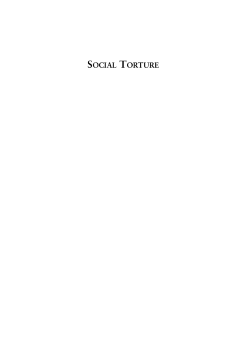
Additional Information
Book Details
Abstract
As Director of the Refugee Law Project at the University of Makerere, Kampala, Uganda, Dolan offers a behind-the-scenes, cross-disciplinary study of one of Africa's longest running and most intractable conflicts. This book shows how, alongside the activities of the Lord's Resistance Army, government decisions and actions on the ground, consolidated by humanitarian interventions and silences, played a central role in creating a massive yet only very belatedly recognized humanitarian crisis. Not only individuals, but society as a whole, came to exhibit symptoms typical of torture, and the perpetrator-victim dichotomy became blurred. It is such phenomena, and the complex of social, political, economic and cultural dynamics which underpin them, which the author describes as social torture. Building on political economy, social anthropology, discourse analysis, international relations and psychoanalytic approaches to violence, this book offers an important analytical instrument for all those seeking entry points through which to address entrenched conflicts, whether from a conflict resolution, post-conflict recovery or transitional justice perspective.
“Dolan succeeds in putting the multiple problems of life in the camps, resp. the protected villages, in the context of the dynamics of regional and national conflict and violence. His exploration of different groups of actors illustrates the complexity of his topic, which is certainly not only of interest for Uganda experts but opens up new perspectives for a more general discussion of the longevity of violent conflicts and humanitarian aid in crisis areas” · Peripherie
“The depth, breadth and scholarliness of Dolan’s account sets it apart from other work on northern Uganda… Dolan provides an important counter narrative and a unique factual record demonstrating that all actors in northern Uganda – not just the LRA – have blood on their hands. Beyond having written an excellent book, Dolan’s real triumph will be if this counter narrative reaches beyond Social Torture’s presumably academic audience. One can only hope that ICC prosecutor Luis Moreno-Ocampo will read this book.” · H-Africa
“This book will engage, engross and enrage; it aims to drive analysis and policy makers to rethink their approaches to such conflicts.” · Choice
Chris Dolan has worked extensively with a range of organizations in Africa, Europe and South East Asia on issues related to conflict, forced migration, governance, gender & sexuality. He is Director of the Refugee Law Project at University of Makerere, Kampala, Uganda.
